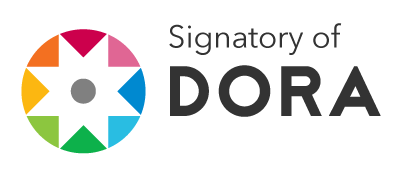
The Declaration on Research Assessment (DORA)

LSTM is a signatory to the San Francisco Declaration on Research Assessment (DORA), which recognises the need to improve the ways in which the outputs of academic research are evaluated. We are committed to implementing the DORA principles as part of a fair and responsible approach to research assessment.
The key practices for LSTM as an HEI are:
- To not use journal-based metrics, such as Journal Impact Factors, as a surrogate measure of the quality of individual research articles, to assess an individual scientist’s contributions, or in hiring, promotion, or funding decisions.
-
To be explicit about the criteria used to reach hiring, tenure, and promotion decisions, clearly highlighting that the scientific content of a paper is much more important than publication metrics or the identity of the journal in which it was published, and recognising the value of mentorship of early-stage investigators.
-
For the purposes of research assessment, to consider the value and impact of all research outputs (including datasets and software) in addition to research publications, and consider a broad range of impact measures, including qualitative indicators of research impact, such as influence on policy and practice.
Individual researchers should be aware of and adhere to the following guidelines:
- When involved in committees making decisions about funding, hiring, career track or promotion, make assessments based on scientific content rather than publication metrics.
- Wherever appropriate, cite primary literature in which observations are first reported rather than reviews in order to give credit where credit is due.
- Use a range of article metrics and indicators on personal/supporting statements, as evidence of the impact of individual published articles and other research outputs.
- Challenge research assessment practices that rely inappropriately on Journal Impact Factors and promote and teach best practice that focuses on the value and influence of specific research outputs.
In May 2022 LSTM established a new senior role of Pro Vice Chancellor for Research Culture and Integrity, who has responsibility for ensuring DORA principles are adhered to.
From 2021 we have been using internal ‘Reading Panels’ to assess the quality of research outputs in our promotion procedures. In 2022 we updated our academic performance management policy and our promotions procedure to ensure that contributions to broader knowledge exchange activities are included in our evaluation of researcher outputs and that these are fairly attributed, evaluated and rewarded.
In 2023 we updated our workload model for education-related activities to ensure that the contributions of all researchers to supervising, assessing and teaching students were adequately recorded. In 2024 we updated our guidance on citizenship activities to include information on the benefits, and routes, to participate in shaping the future of LSTM, guidance on time allocation to such activities, and a more open route to recruitment to committees and working groups that is inclusive of all researchers across the organisation.
An internal dashboard has been developed to record the contributions of each researcher to the broader research ecosystem.
We have established an intranet site that describes our activities to support a positive research culture, including:
- How we are working to meet the obligations set out in the Researcher Development Concordat
- Setting out expectations of Research Group Leaders, plus sources of support they can access
- Our commitment to supporting all staff to undertake at least 10 days of development per year
- Career development support activities available to staff
- Resources for Early Career Researchers
Progress against our latest implementation plan can be viewed online.